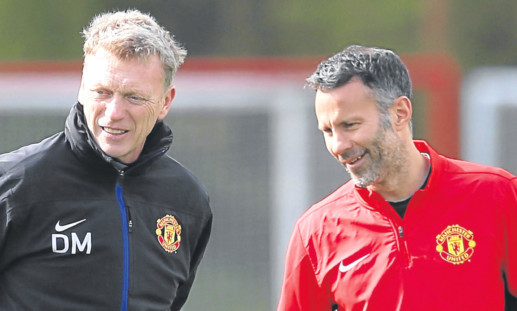
David Moyes’ sacking by Manchester United was no great shock to me.
In fact, it confirmed my belief that football management is most definitely not an exact science. The chemistry between a manager and his players is critical to success.
Most of those who have been discussing Moyes’ exit seem to believe a certain degree of training and experience should lead to guaranteed success in a football management position. The reality is no-one has any idea of who is going to be successful.
Who could have been a better judge in selecting the next boss for the club than one of the world’s most-experienced and successful managers, Sir Alex Ferguson?
Sir Alex advised United’s owners Moyes was the correct choice as his successor, based on his first-class record with Preston and Everton. He would also have had inside information on his coaching methods and managerial style.
If Sir Alex can get it so wrong, then it proves the point that every football managerial appointment is both total guesswork, and a massive risk.
When they make the appointment and it works out well, the directors and Chief Executive generally take the plaudits but actually it is pure luck.
The whole farce that emerged at United proves conclusively that football management is an illogical profession, with often conflicting chemical elements.
We have seen many examples over the years where a new manager comes in and has an immediate response from the same group of players blamed for the previous manager’s failure.
The simple solution has been that the players have responded positively to the tactics employed by new boss, team selections and man-management.
It just happens to fit in with this group of players, and not necessarily because the new boss is better than the previous incumbent.
David Moyes was able to work in a certain way with Everton over many years and use his own methods.
Manchester United is a totally different set-up, and the players he inherited had different skills, ambitions and experiences. Not to mention different egos!
It just didn’t work for Moyes, and I’m sure that looking back Sir Alex might regret that he didn’t prepare his own successor in-house. That could have been managed over a number of years, and would have resulted in far less adjustment being required by everyone involved at Old Trafford.
Moyes should certainly not now be regarded as a bad manager.
Hopefully, he’ll have learned greatly from this experience and realised how this football chemistry can work for you and against you.

Enjoy the convenience of having The Sunday Post delivered as a digital ePaper straight to your smartphone, tablet or computer.
Subscribe for only £5.49 a month and enjoy all the benefits of the printed paper as a digital replica.
Subscribe